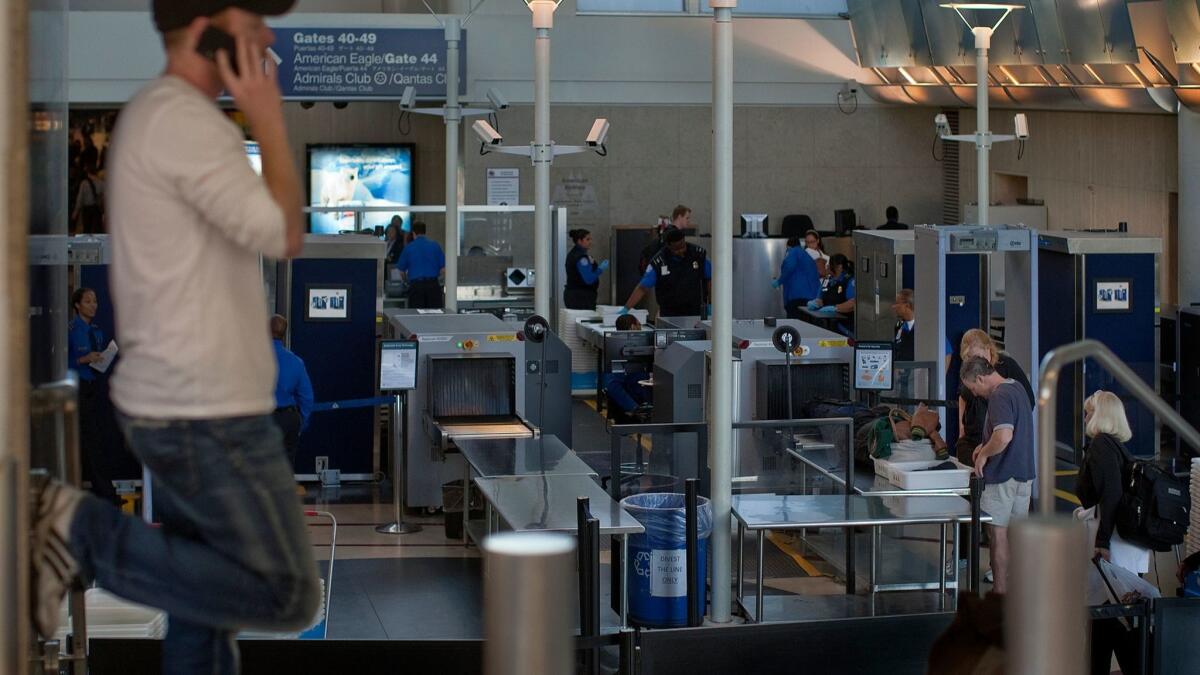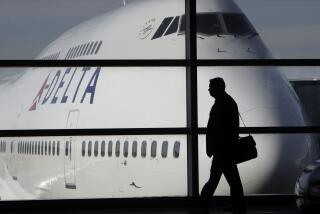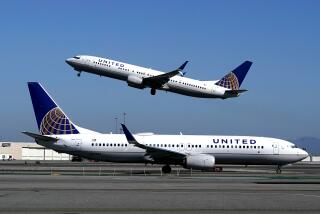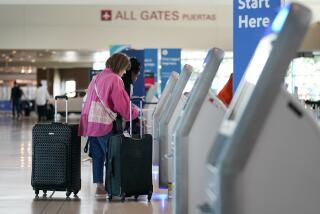Try this alternative to banning laptops and tablets on planes, airline group says

As U.S. security officials consider expanding a ban on laptops, tablets and other such electronic devices in the cabins of commercial flights, an airline trade group proposed tightening security measures instead.
Passengers on flights to the U.S. from eight Middle Eastern and African countries already are banned from carrying on electronic devices larger than a cellphone. On Wednesday, U.S. Homeland Security officials were in Brussels talking with European Union leaders about possibly banning those devices on flights from Europe too.
An official who attended Wednesday’s meeting told the Associated Press that an extended ban to include Europe was “off the table” for now. The Department of Homeland Security issued a statement Wednesday saying only that further discussions with European Union officials will continue next week in Washington, D.C.
Expanding the ban to flights from Europe could cost travelers $1.1 billion a year in lost productivity and added travel time, the International Air Transport Assn., which represents 265 airlines worldwide, said in a Tuesday letter to U.S. Homeland Security Secretary John F. Kelly and Violeta Bulc, the European Commission’s transport commissioner.
The current ban affects 350 flights a week from the Middle East and Africa; a ban on European flights would affect 390 flights a day, according to IATA. Flights from Europe carried 31 million passengers to the U.S. last year.

The ban applies to anything electronic other than a smartphone. (March 22, 2017) (Sign up for our free video newsletter here http://bit.ly/2n6VKPR)
Instead, the trade group suggested, regulators could increase the testing of passengers and their bags and electronic devices for traces of explosives, boost the use of explosive-sniffing dogs and deploy more security agents to interrogate travelers.
“It is imperative that governments consult with industry to identify ways to maximize the security benefits of proposed measures while minimizing the negative impact on airline operations and their passengers,” Alexandre de Juniac, director general and chief executive of IATA, said in the letter.
The current ban — affecting travelers on flights from Jordan, Egypt, Saudi Arabia, Qatar, Kuwait, United Arab Emirates, Turkey and Morocco — was imposed in March.
Homeland Security officials declined to elaborate on the reason for the ban, but CNN has reported that terrorists may have developed a way to hide explosives in laptop computers. The reports say that the terrorists may not have the ability, however, to remotely detonate the explosives, and that security officials say a bomb in the cargo hold of a plane might do less damage than one in the cabin.
Banning laptops on flights from Europe would hit business travelers hardest, IATA argued, saying such a ban would keep executives and others from working during the long transatlantic flights.
“Businesses will cancel trips rather than risk having laptops checked due to risk to confidential information,” IATA said in its letter. “This would have implications for future investment and business transactions.”
To read more about the travel and tourism industries, follow @hugomartin on Twitter.
UPDATES:
3:15 p.m.: This article was updated to reflect the ending to the Brussels meeting.
This article was originally published at 11:10 a.m.







